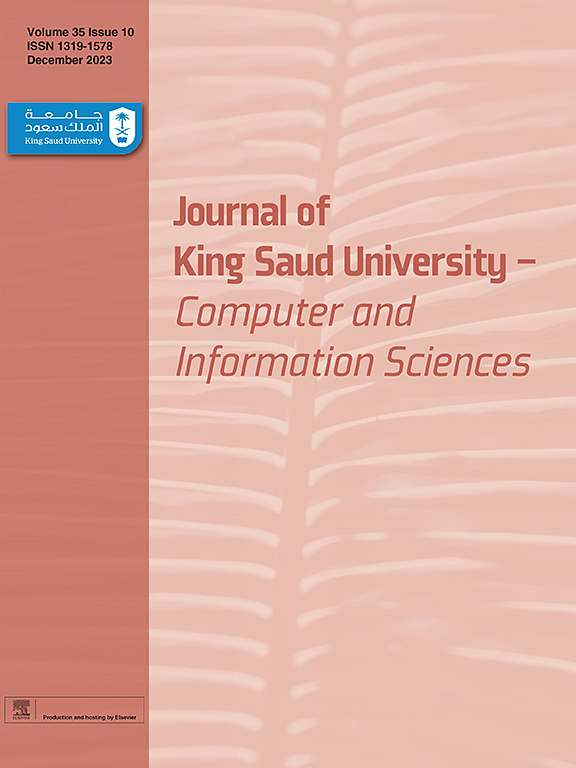移动边缘计算中多属性任务分配的真实随机机制
IF 5.2
2区 计算机科学
Q1 COMPUTER SCIENCE, INFORMATION SYSTEMS
Journal of King Saud University-Computer and Information Sciences
Pub Date : 2024-09-26
DOI:10.1016/j.jksuci.2024.102196
引用次数: 0
摘要
移动边缘计算(MEC)旨在将移动设备(MD)的任务卸载到位于网络边缘的 MEC 服务器上,从而缩短移动应用程序的响应时间并降低能耗。需求是多属性的,移动设备和接入点之间的距离会导致所需资源和传输能耗的差异。遗憾的是,现有研究并未同时考虑任务分配和能耗问题。受此启发,本文考虑了多属性的任务分配问题,该问题包括获胜者确定和卸载决策问题。首先,将问题表述为基于拍卖的模型,以提供灵活的服务。然后,设计了一种随机机制,该机制在预期中是真实的。这就促使系统进入一个均衡状态,在此状态下,任何 MD 都没有动机通过宣布一个不真实的值来增加效用。此外,还提出了一种近似算法,以尽量减少远程能耗,这是一种多项式时间近似方案。因此,它实现了优化损失和时间复杂性之间的权衡。仿真结果表明,提出的机制获得了接近最优的分配。此外,与基线方法相比,建议的机制能有效提高社会福利,并为边缘服务器提供商带来更高的收益。本文章由计算机程序翻译,如有差异,请以英文原文为准。
A truthful randomized mechanism for task allocation with multi-attributes in mobile edge computing
Mobile Edge Computing (MEC) aims at decreasing the response time and energy consumption of running mobile applications by offloading the tasks of mobile devices (MDs) to the MEC servers located at the edge of the network. The demands are multi-attribute, where the distances between MDs and access points lead to differences in required resources and transmission energy consumption. Unfortunately, the existing works have not considered both task allocation and energy consumption problems. Motivated by this, this paper considers the problem of task allocation with multi-attributes, where the problem consists of the winner determination and offloading decision problems. First, the problem is formulated as the auction-based model to provide flexible service. Then, a randomized mechanism is designed and is truthful in expectation. This drives the system into an equilibrium where no MD has incentives to increase the utility by declaring an untrue value. In addition, an approximation algorithm is proposed to minimize remote energy consumption and is a polynomial-time approximation scheme. Therefore, it achieves a tradeoff between optimality loss and time complexity. Simulation results reveal that the proposed mechanism gets the near-optimal allocation. Furthermore, compared with the baseline methods, the proposed mechanism can effectively increase social welfare and bring higher revenue to edge server providers.
求助全文
通过发布文献求助,成功后即可免费获取论文全文。
去求助
来源期刊

Journal of King Saud University-Computer and Information Sciences
COMPUTER SCIENCE, INFORMATION SYSTEMS-
CiteScore
10.50
自引率
8.70%
发文量
656
审稿时长
29 days
期刊介绍:
In 2022 the Journal of King Saud University - Computer and Information Sciences will become an author paid open access journal. Authors who submit their manuscript after October 31st 2021 will be asked to pay an Article Processing Charge (APC) after acceptance of their paper to make their work immediately, permanently, and freely accessible to all. The Journal of King Saud University Computer and Information Sciences is a refereed, international journal that covers all aspects of both foundations of computer and its practical applications.
 求助内容:
求助内容: 应助结果提醒方式:
应助结果提醒方式:


